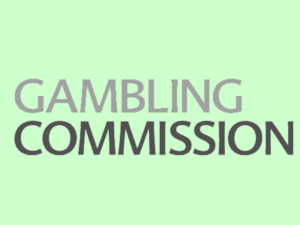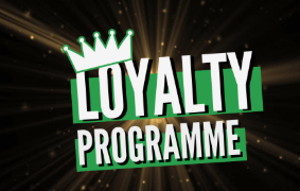Will Gambling VIP Programs and Loyalty Points Schemes End?
 If you have ever been a member of an online casino, sportsbook or poker room, then you will likely know that many of them provide players with loyalty perks. These place a lot of focus on the big spenders, providing enhanced offers, additional rewards and more depending upon the amounts that you deposit and spend on the website. These VIP programs have led to several people ascending up the ladder and becoming gold, platinum and beyond members of the gambling site. At the peak of these VIP schemes, you are rewarded with the best that the site has to offer. Of course, it takes a lot for a player to reach such a status.
If you have ever been a member of an online casino, sportsbook or poker room, then you will likely know that many of them provide players with loyalty perks. These place a lot of focus on the big spenders, providing enhanced offers, additional rewards and more depending upon the amounts that you deposit and spend on the website. These VIP programs have led to several people ascending up the ladder and becoming gold, platinum and beyond members of the gambling site. At the peak of these VIP schemes, you are rewarded with the best that the site has to offer. Of course, it takes a lot for a player to reach such a status.
It is due to this factor and various other implications that VIP programs and loyalty schemes have come under fire from campaigners in recent years. An overhaul of the UK Gambling Act is currently being undertaken by the Government, and calls have been made for changes to be introduced surrounding these loyalty schemes.
Some changes to VIP schemes were already announced in 2020 that put more onus on operators to scrutinise whether players can afford to lose what they spend and that they are not vulnerable or suffering addiction. New legislation is likely to go further, the question is what exactly will those changes be? Are they likely to be banned altogether by lawmakers or brought under extreme regulations? And why is it the case that these programs are being targeted by campaigners in the first place? Have they caused such problems in the UK?
These questions are all going to be looked at here today, and we’ll get to the bottom of what the issue is with VIP programs. Furthermore, we will look at how much of an impact the potential banning of them will have on the players who have been benefitting from their VIP status at online casinos.
What Are VIP and Loyalty Schemes?
 It is not uncommon to find betting companies providing its players with access to VIP schemes. These essentially operate with the aim of providing you with extra rewards for continuing to deposit and play the games or place bets at their site, rather than using a rival brand. In other words, your loyalty to one specific casino or sportsbook is appreciated with specific exclusive perks that non-VIP players will not receive.
It is not uncommon to find betting companies providing its players with access to VIP schemes. These essentially operate with the aim of providing you with extra rewards for continuing to deposit and play the games or place bets at their site, rather than using a rival brand. In other words, your loyalty to one specific casino or sportsbook is appreciated with specific exclusive perks that non-VIP players will not receive.
Multiple different types of loyalty schemes exist, with some simply providing you with points whenever you play games or bet and others offering cashback when you complete certain missions and so on. Each VIP offer comes with its own set of rewards for you to benefit from as a player.
The end goal of these schemes is, of course, to get you to keep coming back for more gaming and betting. And more play means you need to make more deposits. To ensure that you do continue doing this, the sites present you with a reward that will either boost your gambling balance or allow you to enjoy some free spins on specific slots or offer speedier withdrawals of your funds.
Loyalty schemes are generally open to all players, and you will become an outright member of one of these from the get-go. Usually, you will collect points when you play the games in the lobby, and then it is entirely up to you what you do with them. Nothing is specifically forced upon you with regard to a standard loyalty scheme. In terms of a VIP club though, this is a different matter entirely.
VIP schemes usually come with even more enhanced rewards and perks, and to become a VIP player, you need to be meeting certain deposit and gameplay levels. Often times, the higher levels of VIP schemes will be available to you via invite only, so you will need to wait for the platform itself to send you a personalised invitation for such. Once in the club you then often have to maintain a minimum spend to retain those perks, putting further pressure on the customers to keep depositing and betting.
To be fair, however, while these schemes have an obvious relationship with unaffordable gambling they are not unique to gambling. You can receive VIP status in pretty much any industry and they are legitimate ways to reward the best customers. Gambling is, however, clearly addictive and that is where the big problems start, although it is worth pointing out many sites and companies that sell alcohol have VIP and loyalty schemes so any future ban on VIP programs in gambling have to be to do with more than just it being an addictive service.
Why Are VIP Schemes Being Targeted by Campaigners?
 The United Kingdom Gambling Commission (UKGC) took aim at online gambling companies after an investigation was done into VIP schemes. In the data that was collected and reviewed, it found that one company had taken 83% of its deposits from a 2% share of its registered customers – all of whom were VIP players. From this, it determined that VIP schemes were to blame for rewarding gamblers who regularly lose large sums of money. Perks included within those schemes include bonus rewards, cashback on losing wagers and even football tickets at one online sportsbook.
The United Kingdom Gambling Commission (UKGC) took aim at online gambling companies after an investigation was done into VIP schemes. In the data that was collected and reviewed, it found that one company had taken 83% of its deposits from a 2% share of its registered customers – all of whom were VIP players. From this, it determined that VIP schemes were to blame for rewarding gamblers who regularly lose large sums of money. Perks included within those schemes include bonus rewards, cashback on losing wagers and even football tickets at one online sportsbook.
Even before the investigations by the UKGC took place, VIP schemes had come under fire from anti-gambling campaigners. It was only once the Commission released data to The Guardian newspaper through a Freedom of Information request, that insightful information was given to the public, though. That information displayed just how much the gambling industry in the UK relies upon the deposits made by VIP players.
The Gambling Commission said that it would take action to address poor practice by online gambling operators in relation to VIP programs. At the same time, it did not rule out the possibility of having them banned altogether.
The issue surrounding VIP programs though, is that the same report suggested that VIP gamblers are much more likely to be addicts than those who are not. According to the UKGC, around 47,000 players in the country are marked as VIP players, and about 8% of that number are thought to be problem gamblers. Online casinos tend to be a lot more frequent with the pushing of their VIP promotions for such players as well, meaning that those with severe problems are likely to be easily led back to a site to deposit more money.
Fines for Gambling Operators
 The UK Gambling Commission has been very active in its attempt to clean up the VIP scheme issues. In fact, it targeted several operators, handing out fines to those that had breached the terms of their licences with such. In April of 2020, the Caesars Entertainment company was issued with a £13 million fine – a record high – for its failures relating to VIP schemes.
The UK Gambling Commission has been very active in its attempt to clean up the VIP scheme issues. In fact, it targeted several operators, handing out fines to those that had breached the terms of their licences with such. In April of 2020, the Caesars Entertainment company was issued with a £13 million fine – a record high – for its failures relating to VIP schemes.
At the same time as being issued the huge fine, three senior managers from Caesars, which operates 11 of the UK’s casinos based in cities and seaside locations, lost their licences to run gambling businesses.
The Commission stated that Caesars was guilty of a series of high-level failings in terms of its treatment of VIP players. These customers were frequently rewarded with excellent perks as a way of inspiring their loyalty due to the fact that they wagered and lost large sums of money. Of those failures, one customer was allowed to lose £323,000 in one year, despite the fact that clear signs of gambling addiction were present. Those signs included the player engaging in gaming for more than five hours on 30 separate occasions.
Just one month prior to this, the UKGC handed an £11.6 million fine to the Betway brand, too. This, the Commission said, was due to the company accepting stolen money from high-spending VIP customers, with several of these players showing clear signs of gambling addiction. Betway did little to combat the signs being displayed, which also added more weight to the imposed fine. According to the official figures, the regulatory body stated that Betway had allowed £5.8 million to pass through its business, and some of that was actually stolen money. That also marked a record high penalty for the Betway brand.
Commission Introduces New Rules
 In September of 2020, the Gambling Commission introduced a set of new strict guidance rules for online operators to follow, as a way of cleaning up the malpractice of VIP schemes. According to the regulatory body, if the guidance is followed, then there should be no irresponsible incentivisation of high value customers in the future.
In September of 2020, the Gambling Commission introduced a set of new strict guidance rules for online operators to follow, as a way of cleaning up the malpractice of VIP schemes. According to the regulatory body, if the guidance is followed, then there should be no irresponsible incentivisation of high value customers in the future.
These rules were brought about following the repeated discovery of the failure in protecting high value customers. The new guidance that operators are now required to follow determines that before a customer can be made into a VIP, it must:
- Establish that the player’s spending is both affordable and sustainable
- Determine whether there is any evidence of gambling related harm or a heightened risk to such
- Ensure that the licensee has up-to-date evidence relating to the identity, occupation and source of funds of the player
- Continue with verifying the information provided to them, with ongoing gambling harm checks being completed on each individual suspected of suffering from gambling addiction.
As part of those new rules, all operators have to appoint a senior executive who possesses a personal management licence (PNL) to oversee the VIP scheme in place. Those individuals will be held personally accountable for the new guidelines being followed by online gambling platforms to the letter.
At the time, Neil McArthur was operating as the chief executive of the Commission, and he said that the number of customers signed up to VIP schemes had already reduced by 70% since they challenged the industry. He went on to state that operators cannot be in any doubt about the expectations of the UKGC. “If significant improvements are not made, we will have no choice but to take further action and ban such schemes”, he said.
Do Schemes Work? What Will Happen If There Is A Ban?
 One serious question that has been asked about VIP programs by numerous industries is whether they actually create the loyalty that their title suggests. Obviously, multiple industries have loyalty schemes of one sort or another. You only have to look at supermarkets with their own points cards or cards with stamps from cafes where you can get a coffee free after purchasing six, for example. Such incentive schemes have been around for decades now, so clearly something stands out about them.
One serious question that has been asked about VIP programs by numerous industries is whether they actually create the loyalty that their title suggests. Obviously, multiple industries have loyalty schemes of one sort or another. You only have to look at supermarkets with their own points cards or cards with stamps from cafes where you can get a coffee free after purchasing six, for example. Such incentive schemes have been around for decades now, so clearly something stands out about them.
The Harvard Business Review has made the suggestion that they do build a customer’s loyalty through research it has conducted. These schemes, it states, are key to the survival of a gambling business, as being able to count on regular bettors coming back for more (especially those that wager large amounts of money) provides them with a staple stream of revenue.
Betting companies already know that they will take a certain percentage of all bets placed on their sites. With a group of regular customers who often bet large amounts of money, an income stream is pretty much guaranteed. That income also heavily outweighs any sort of cost that a loyalty scheme imposes. Therefore, keeping those high-rollers happy is something that operators are very much behind.
What Impact Would A VIP Ban Have On The Industry?
 If you have a player that bets £10,000 or £20,000 every month at a specific site, receiving loyalty perks in the process, can you be sure that they will continue coming back in the same way without those perks? In the end, it is quite difficult to see that that will be the case. There will be little incentive for them to keep depositing those high amounts if they are no longer receiving exclusive rewards from the site.
If you have a player that bets £10,000 or £20,000 every month at a specific site, receiving loyalty perks in the process, can you be sure that they will continue coming back in the same way without those perks? In the end, it is quite difficult to see that that will be the case. There will be little incentive for them to keep depositing those high amounts if they are no longer receiving exclusive rewards from the site.
Doubtless, those people who are heavily anti-gambling will be happy for the Commission to ban such schemes. Especially considering the regulatory body’s various attempts to rein them in already have largely been unsuccessful for the most part. Granted, people will still place bets at online sites even if VIP schemes are abolished, but the revenue stream is more likely to narrow down. And with a reduction in the revenue stream for online casinos and sportsbooks, a reduction in the amount of tax taken by the Government will also be experienced.
Of course, the industry itself will likely survive without those loyalty schemes in place. Yet, does the banning of VIP programs seem to only be there as a way of punishing those customers who actually do benefit from them and do not have adverse effects of depositing large amounts? It could be argued this way, indeed. And especially now, considering that new guidelines are in place for operators to follow that should theoretically stop vulnerable players from becoming VIP members.
If a regular customer deposits and wagers £10,000 or more every month, regardless of whether they are rewarded for it or not, is it not simply a case that they are worse off if the VIP rewards offered to them are simply removed by the Government? The small recompense that such schemes provide are basically there for the sites to give something back for such loyalty. Of course, there is the argument that such a player is also more likely to stop betting altogether (or at least significantly reduce the amount they spend) if they are not receiving a reward for that kind of activity. It’s quite the difficult area to navigate through for the UK Gambling Commission.
Could People Turn To Unlicensed VIP Schemes?
 There is also a further issue if VIP and loyalty schemes are banned completely in the UK and that is there is very little to stop users who want to spend a lot of money turning to unlicensed sites who will be able to maintain their VIP programs.
There is also a further issue if VIP and loyalty schemes are banned completely in the UK and that is there is very little to stop users who want to spend a lot of money turning to unlicensed sites who will be able to maintain their VIP programs.
If someone is determined enough to get VIP rewards for big gambling spend there will always be a means to do so and so this may not stop all the issues, it may transplant them into the black market where it is almost impossible to track the impact.
Black market sites also have little motivation to protect customers and so are likely to do the exact opposite of what any new rules for licenses sites stipulate. Combined with the potential ban on VIP schemes there will also be new affordability checks and potentially enforced deposit or loss limits for customers. This, again, could mean many people will be happier to use unregulated sites to bet, despite the obvious risks.
It is indeed a complex debate that does not have an obvious answer. Few would argue VIP programs attract a disproportionate amount of problem gamblers, and indeed cause many people to become problem gamblers. At the same time most customers that use the services are not problem gamblers and can afford these amounts.
The tricky thing is finding a way to allow genuine VIP customers access to perks while preventing those with problems, or those that can’t afford it, falling into them. It seems likely that it will be further regulation of these schemes rather than a complete ban, given the risks outlined above that many could simply turn to unregulated brands, who offer them no protection at all.



